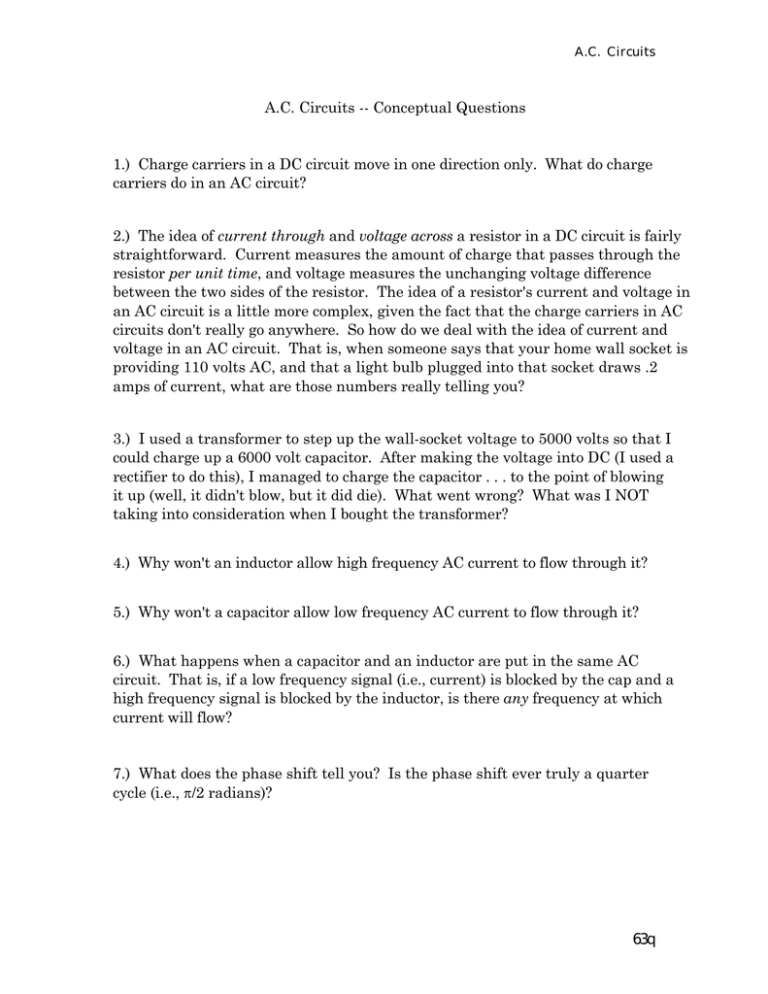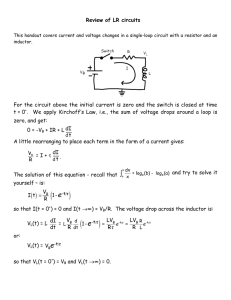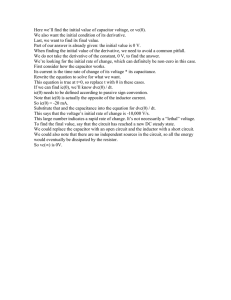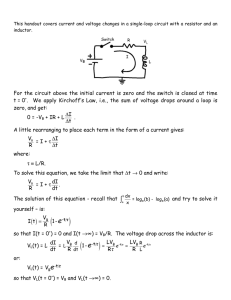AC Circuits - Pretty Good Physics
advertisement

A.C. Circuits A.C. Circuits -- Conceptual Questions 1.) Charge carriers in a DC circuit move in one direction only. What do charge carriers do in an AC circuit? 2.) The idea of current through and voltage across a resistor in a DC circuit is fairly straightforward. Current measures the amount of charge that passes through the resistor per unit time, and voltage measures the unchanging voltage difference between the two sides of the resistor. The idea of a resistor's current and voltage in an AC circuit is a little more complex, given the fact that the charge carriers in AC circuits don't really go anywhere. So how do we deal with the idea of current and voltage in an AC circuit. That is, when someone says that your home wall socket is providing 110 volts AC, and that a light bulb plugged into that socket draws .2 amps of current, what are those numbers really telling you? 3.) I used a transformer to step up the wall-socket voltage to 5000 volts so that I could charge up a 6000 volt capacitor. After making the voltage into DC (I used a rectifier to do this), I managed to charge the capacitor . . . to the point of blowing it up (well, it didn't blow, but it did die). What went wrong? What was I NOT taking into consideration when I bought the transformer? 4.) Why won't an inductor allow high frequency AC current to flow through it? 5.) Why won't a capacitor allow low frequency AC current to flow through it? 6.) What happens when a capacitor and an inductor are put in the same AC circuit. That is, if a low frequency signal (i.e., current) is blocked by the cap and a high frequency signal is blocked by the inductor, is there any frequency at which current will flow? 7.) What does the phase shift tell you? Is the phase shift ever truly a quarter cycle (i.e., /2 radians)? 63q 8.) What is the measure of a capacitor's net resistive nature? That is, what is it called, what are its units, and how is it calculated? 9.) What is the measure of an inductor's net resistive nature? That is, what is it called, what are its units, and how is it calculated? 10.) What does the impedance of a circuit tell you? Also, what are its units and how is it calculated? 11.) Is the impedance of a circuit frequency dependent? If so, how so? 12.) Tweeters and woofers are types of speakers found in most speaker systems. Let's assume you have split the signal from a radio station and want only the high frequency part of a signal to be fed to the tweeters while only the low frequency part of a signal is fed to the woofers. What additional bit of circuit wizardry would you have to create to ensure that that would happen? 64q



